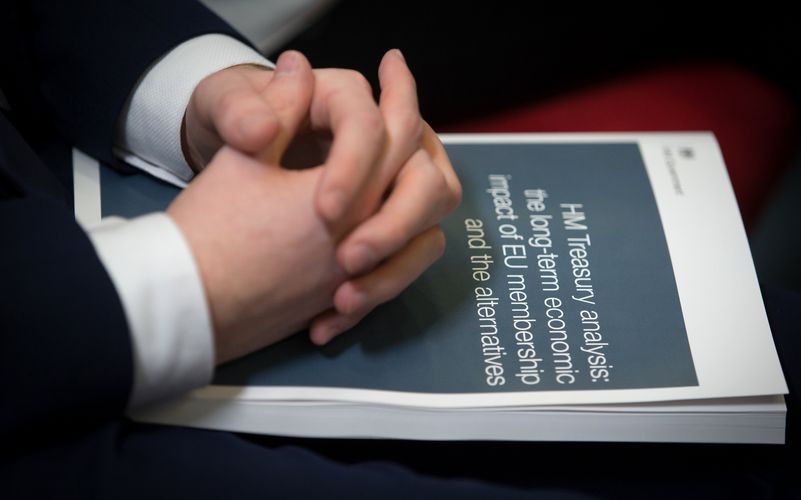(This article was originally published by the Official Monetary and Financial Institutions Forum (OMFIF) in the The OMFIF Commentary.)
The question of a possible UK exit from the European Union is similar to that of marriage and divorce. When you are in love, it’s easy to find good reasons to go down the aisle. Similarly, when you’re estranged, you will find lots of grounds to go separate ways. The decision itself is driven by emotions. Weighing up rational arguments brings you only so far.
Among the arguments against ‘Brexit’, the economic ones are in my view overrated. The success of an economy or country depends above all on its integration into the world economy, the quality and application of the legal framework, and the education and industry of its population. The relative decline of the British economy from the second world war to the 1970s was due to internal factors, as was its relative revival in the 1980s and 1990s. EU adherence or non-adherence to the EU, in future, will not be the most important influence on the UK’s economic success.
On the other hand, the political consequences and emotional risks of Brexit are often underrated. Since 1066, England (later the UK) has always played an active role on the Continent. It took care of the balance of power there and played a major role in many of the great European wars.
For better or worse, the EU now comprises the bulk of the European continent. Meetings of the European council in Brussels have taken the place of former wars.
By leaving the EU, the UK would join the other two powers on the margins of Europe, Russia and Turkey. British influence on EU decisions, be they right or wrong, would dwindle. Would that be a happy choice? Would the quality of decision-making in Brussels, which is often abominable, get any better if British common sense was no longer present?
The EU’s present course is more than troubling. The euro may fail, the economic decline of the Romanic countries may continue. The Schengen regime may prove a dangerous dream. But what alternative have we got but to muddle through, to identify and correct our mistakes? Germany, with its troubled past and without natural borders, has no choice but close union with its neighbours, above all Poland and France.
The UK’s political weight applied towards Europe has often resulted in better European decision-making. And these decisions on the Continent will remain important, sometimes vital, for Britain. This has not changed since 1066 and it never will.
Brexit might make sense if one were convinced that the EU was doomed to fail anyway and would break apart sometime in the foreseeable future. But even the most ardent Brexiteer can’t wish that. The narrow strip of water dividing the UK from the mainland would not protect the UK from the fallout from that event. So maybe it is better to stay and stick it out.
Brexit might be a rational option, too, if one hopes for better UK legislation and more consistent and flexible British decision-making outside the EU. The separation of Singapore from Malaysia was certainly good for Singapore. But where is the British Lee Kuan Yew? And, taken all in all, the twists and turns of British politics over the last 70 years have not been that rational. Home rule means that you are mostly hit by mistakes of your own making. It does not necessarily mean there are fewer mistakes.
So much for the rational arguments. But, as in love, marriage and divorce, they probably will not prove the decisive factor. In the privacy of the polling booth, reason will compete with passion. And the romantic longing for an irretrievable past may get the better of the British voter.
– Thilo Sarrazin is a former member of the Executive Board of Deutsche Bundesbank.
